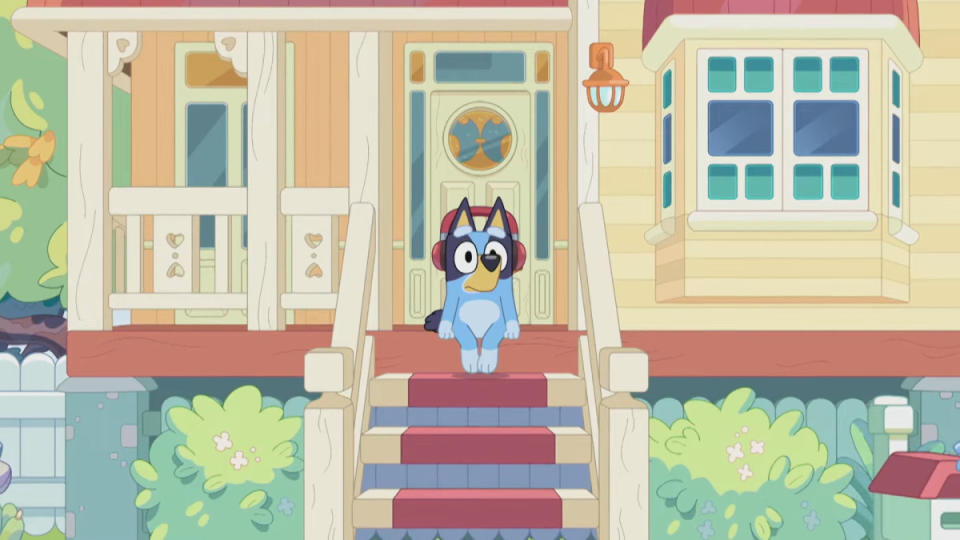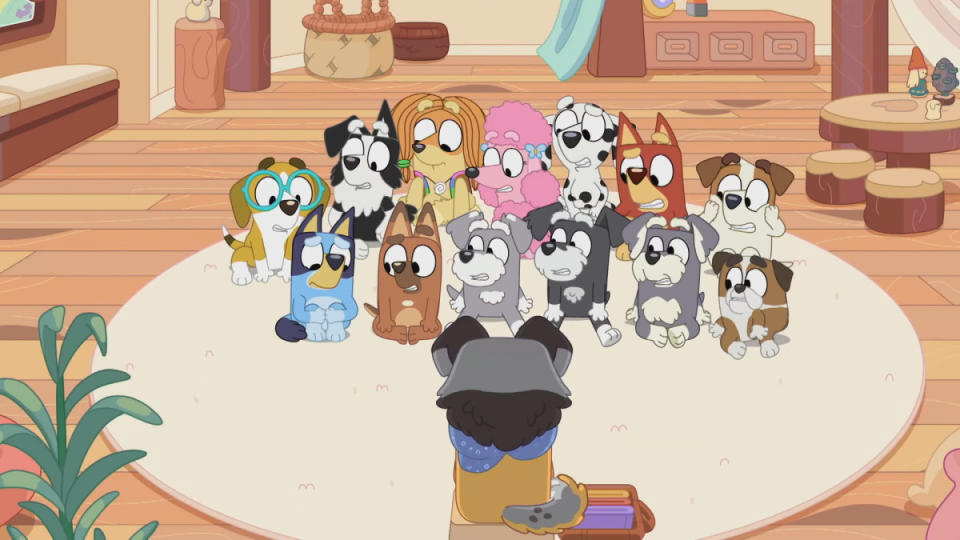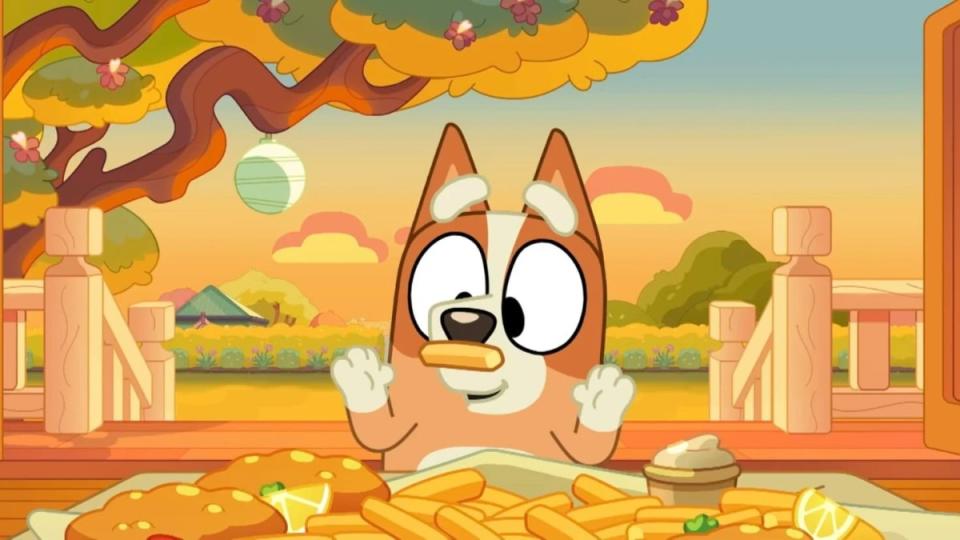Bluey’s 'The Sign' Tackles Uncertainty in the Most Australian Way
There’s an Australian proverb that’s spoken by millions every single day. It’s a phrase deeply ingrained in Australian culture, with deep, largely unspoken meaning behind it. I heard it every day growing up, and I hear it every day now, as an adult living in Australia:
“She’ll be right.”
It’s often followed by a “mate,” but the sentiment remains the same. It’s spoken from one Australian to another when something is in a serious state of uncertainty, but they’re hopeful that it’ll work out, somehow. Is the bumper falling off your car? Chuck some gaffer tape on it, she’ll be right. Is the chicken in the fridge a day past its expiry date? Bit dodgy, but she’ll be right, it’s only been a day. A lot of the time, it’s going to end in disaster, but there’s a hopefulness that, against all odds, everything will work out okay.
Bluey’s The Sign takes this concept and turns it into a 28-minute-long episode — the longest episode in the series’ history, which usually sees episodes lasting little more than seven minutes. After the Heelers’ house is put up for sale, four-year-old Bluey struggles to accept that her life, and that of her family, is about to change forever. It might be for the better, and it might be for the worse, there’s really no way of knowing. So how do the Heelers deal with it? She’ll be right.

Ludo Studio
At school, Bluey asks her teacher why stories always have happy endings. The teacher says that it’s because real life already has enough sad endings. A moment of grief follows, where Bluey tells her school friends she’s never going to see them again, and the teacher decides to tell another story.
The story tells the tale of a farmer who lives through a series of good fortunes and bad. Every time something happens, the farmer’s neighbors tell him “that’s good,” or “that’s bad.” His response is the same, every time: “We’ll see.”
We see that phrase pop up a few more times throughout the rest of the episode. When Chilli, Bluey’s mum, takes the kids on a chase through the town to chase after Frisky, who ran away from her wedding, the gang falls into a series of mishaps. On their face, each of these mishaps seems bad, but in the end, they ultimately lead to something good. Maybe not directly, and maybe not forever, but for a while, things get better, and then they get worse.

Ludo Studio
It’s a uniquely Australian mindset, to kick the can down the road, assume everything will work out, and hope that it actually does. It’s a very Australian ethos, to push things down, deal with them later, and never show any sign that things are falling apart. We put on a brave face, say “she’ll be right,” and deal with it when we have to.
I’m not the first to have written about this cultural touchpoint. Damon Reece, a narrative designer who worked on the indie hit Necrobarista, wrote an incredible essay a few years back called The Uncanny Valley of Culture, where they explored this aspect of Australian culture through Aussie media, and how American culture tends to stifle creativity and expression. It’s a fantastic read and I highly recommend you check it out.
But seeing it on full display in Bluey, a series that is unapologetically Australian, that is viewed by millions of people around the world each week, was genuinely moving for me as an Australian. Any other series produced for a global audience would water down its Australian influence, sand down the edges to make it more palatable to American tastes.
But Bluey doesn’t do that. It never has. It’s covered topics like cricket, fairy bread, pass the parcel, and Christmas during the summertime. The final moments of The Sign showed the Heeler family gathered around in an empty home, eating takeaway fish and chips because all of their possessions were packed up. There’s no dialogue, just the family, sitting, eating, enjoying each other’s company in an empty home. It’s a beautiful moment.
But it’s the fish and chips that made me tear up, because I grew up in Queensland, where Bluey is set. I moved dozens of times in my childhood, felt the feelings that Bluey herself felt dozens of times, and ate fish and chips with my family. It was always fish and chips, every time we moved — a cultural tradition unique to the people of south-east Queensland. My lived experience, my culture, was there on the screen, for all the world to see.

Ludo Studio
Throughout The Sign, Bluey’s dad Bandit keeps saying that they’re moving to give the kids a better life. Chilli doesn’t want to move away from her family and her support network, she’s conscious that it means her daughters will leave behind their friends and everything they’ve ever known. But she accepts it, and pushes those feelings down, because maybe this move will give their family a better chance in life. We’ll see.
So when Bandit makes the decision, after The Dogs Who Can’t See pull out of the sale of the Heelers’ family home, to stay put, it’s a big moment. Leaving for a new city was a risk, but staying was just as big of a risk. He was turning down a new job, a new home, a new life, and it very well could have been better for everybody. There was a deep, terrifying uncertainty of what the future holds, and there was no way to know which option was the best.
When Bandit pulled out that For Sale sign, in a moment of anger and fear, he didn’t speak a word. But internally, and through his actions, he dealt with the inherent uncertainty of the situation in the most Australian way of all. His decision to risk it all and stay in Queensland sent a clear message: She’ll be right.

